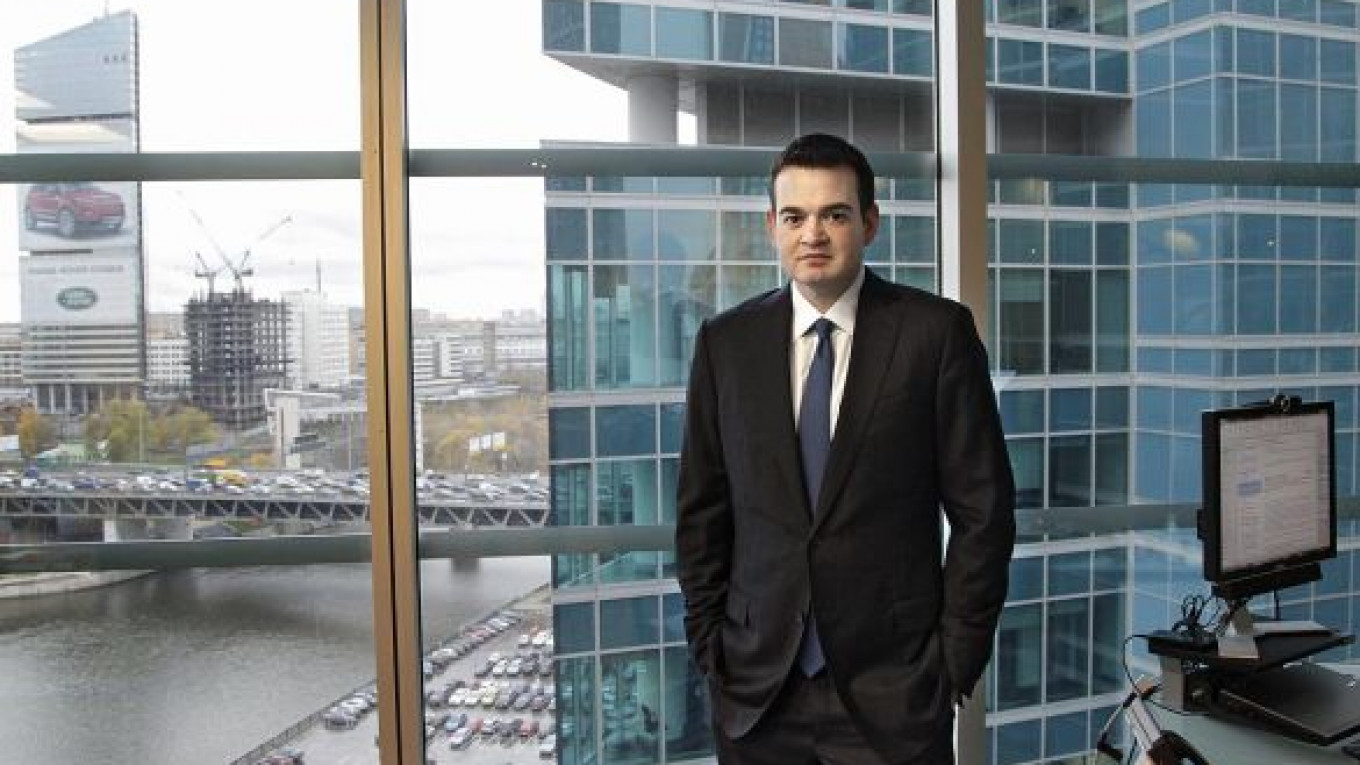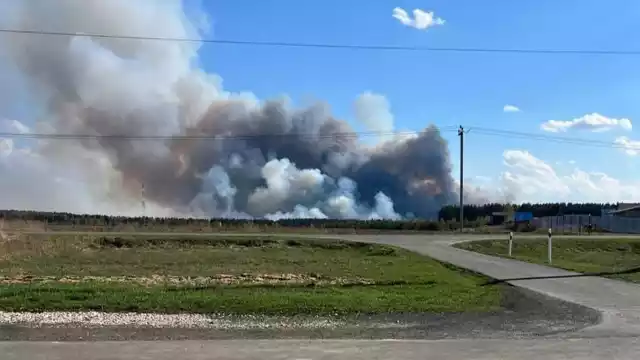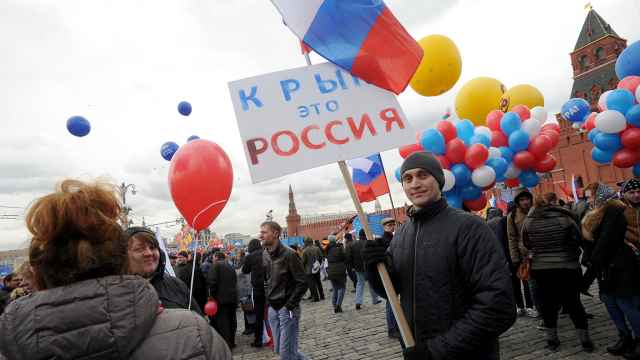Few people would dare to reject advice from Jack Welch, the former GE chairman and CEO who is widely admired as one of the greatest business leaders of the past century.
But Ron Pollett did just that — and has no regrets.
Three years into his assignment as GE's top official in Russia, Welch advised Pollett that it was time to pack his bags and go to his next assignment.
"I said, 'Jack, I believe in this place. I think something is going to happen here. I think we can make something big here,'" Pollett said in an interview. "He said, 'Look, it's your career.' I said, 'Yup.'"
"He wasn't a firm believer, obviously, at the time. But, you know, I think I was right," Pollett said.
Education
1991 — Colgate University, Bachelor of Arts in Soviet/Russian studies
Work Experience
1991-93 — Kidder, Peabody & Co., financial analyst, investment banking
1993-97 — General Domestic Appliances, CIS joint-venture director based in Donetsk, Ukraine
1994-Present — GE, where Pollett served as national executive for GE Ukraine (1994-97); business development manager for GE Lighting Europe (1996-97); national executive for GE in Russia, Ukraine & Belarus (1998-2001); national executive for GE in Russia/CIS (2001-05); president and CEO of GE in Russia/CIS since 2005
Organizations
2001-Present — American Chamber of Commerce in Russia, board member since 2001, chairman of the board since 2006
2009-Present — International Advisory Council IBLF-Russia, member
Favorite book: “Crime and Punishment” by Fyodor Dostoevsky
Reading now: “The Great Game: The Struggle for Empire in Central Asia” (1992) by Peter Hopkirk
Movie pick: “Twelve Chairs” (1971) directed by Leonid Gaidai
Favorite Moscow restaurant: GQ Bar, 5 Ulitsa Balchug
Best weekend getaway: Karelia is a great four-day getaway. I like to take an overnight train, rent a dacha on the lake, and go salmon fishing. For an overnighter, Le Meridien Moscow Country Club is a good getaway.
Pollett seems to have made a good call. Just as U.S.-based GE blossomed during Welch's tenure, the company's local operations have skyrocketed under Pollett. GE's businesses here have surged from 70 employees and annual revenues of $110 million when Pollett took over in 1998 — just as the financial crisis swept Russia — to 3,000 employees and annual revenues of more than $2 billion today.
Pollett, president and CEO of GE in Russia/CIS, wryly compares GE to Gazprom — pointing out that its operations focus primarily on infrastructure but span diverse activities. It has a school that has taught hundreds of Russian doctors how to use GE health care equipment. Its studio dubs the hit GE-owned television show "Law & Order" into Russian. Its financial services arm leases about 30 planes to Aeroflot. Oh, and the jet engines on some those planes were made by GE's aviation unit.
"The Russians see us as the Gazprom of the U.S.," Pollett said, adding with a slight, facetious smile, "and I'd say if we only had one-tenth the influence in the United States as Gazprom has in Russia, we'd be happy."
Pollett, a 41-year-old U.S. citizen, welcomed a reporter into his 12th-floor office in a gleaming tower in the Moskva-City business district to discuss how he grew GE into a major infrastructure company in Russia, how 70 percent of his business comes from the government but he never pays bribes, and how his fluency in Old Church Slavonic has translated into a love for Russia that keeps him here.
This interview has been edited for length and clarity.
Q: What is your secret to successfully managing people and business in Russia?
A: I try to hire the best people I can and then get out of the way and let them do their jobs. You've got to keep control mechanisms in place — measurements such as goals and objectives — but you really don't want people to feel that they need to come to you for every decision. In many parts of the world, and here in particular, I have noticed that many people don't want to take decisions — they want to have the general director take the decisions. I'm famous for pushing it back down and helping people build the self-confidence to take the decisions themselves. I tell them, "No matter what you do, it's not going to break the company." If you get 16 out of 20 right, then we're happy. As for the four you don't get right, we've got to make sure you don't break the company and you learn from it.
It's all about giving people the self-confidence and the ability to take decisions and become true business leaders. I've got an expression that illustrates this: "That guy's smart, but is he competent?" You know you can find smart people, but are they actually able to get the job done?
Q: How do you find the right people?
A: That's probably the biggest challenge in Russia. There are a lot of very smart people, very good technical people. But it's difficult to find leadership skills. That's why you'll find that a lot of companies bring in expat managers just to get the Western leadership traits. We find success in hiring junior-level people and then putting them through GE training. We have several veterans who have been with GE for more than 10 years and grown with the company in various roles.
We have fewer expats here today than we did when I got here and we had 70 employees, of which about 40 were expats. Today, we have about 3,000 and fewer than 40 expats. I'm a firm believer in Russian talent. In GE, we don't have glass ceilings like many companies here. It's really about instilling self-confidence to make sure people feel they are on the same level as their European counterparts.
I also hire people who know what they're talking about. They might not have the best suit; they might not have the best tie; they might not have a Western education. But they have been here in the system and understand what they're doing and how to do it. They are able to perform.
Many companies hire people just because they look great — perhaps it's because they have an MBA on their resume. But I try to test people to see what they know. I don't scratch the surface; I go fairly deep during interviews to understand who these people are and what makes them tick. I've been known to hire people who don't speak a word of English and were rejected elsewhere. But we sensed they were smart. We hired the current CFO for one of our divisions here 10 years ago, and she didn't speak a word of English. She is now a fantastic employee and a great leader. She has grown up in the system; she speaks English better than I do.
Q: What advice would you offer a foreigner who wants to invest or expand in Russia?
A: Be patient. Things take time here. If you are in the strategic sectors such as we are in many of our businesses, you need to work very closely with the government. Try to find partnerships with the government in order to be successful long term — I think it's a bit different for consumer goods companies, which are not in strategic sectors.
Our challenge is to find ways to work with the government as well as to bring technology and localize GE's products and services together with Russian partners. If you take a look at our operations here, a good 70 percent of our sales are government. We consider Gazprom government. Aeroflot also would be government, with the largest aircraft base in Russia. Aeroflot has about 30 aircraft that we own and lease. The airline also has more than 170 planes with our engines.
Russia changes all the time, and that's the exciting part of it. You have ups and downs. My advice to investors is to be here for the long term, be patient, but also be able to ride this roller coaster. That's part of the fun being here — riding the roller coaster.
One of my favorite expressions is "never say never." I've seen a lot of things that people said would never happen in Russia, and they have happened. So never say never. Things will happen here.
Q: How do you deal with corruption?
A: Two ways. One is we are driven by compliance. We've got a very strict system. We check every customer to understand who they are, who owns the companies where their resources come from, and where they are going. We work to understand the deal structures. We actually do turn down questionable deals.
We also deal at the very top with people who are interested in attracting GE for GE, for the ability to attract other foreign investors by having somebody like GE in the country, and also for our technology and our ability to localize our production with local partners. To be honest, we don't sense corruption at the very top. Sometimes, things could happen, but we just go back to the top, tell them about it and the issue is fixed. So it's truly a top-down approach that we have here, which we are blessed with because of our size and our interest in the strategic sectors.
Q: Could you share a problem you resolved and what you learned from it?
A: Getting through the negotiations phase with major companies can be a challenge. People have different agendas, and working through their agendas can mean two steps forward and one step back. Or it can mean two steps forward, two steps sideways, and one step back. You've got to be willing to put in the time to understand each other. A lot of these negotiations involve explaining what we need, the sharing of best practices. We explain exactly what's driving our side and show the Russians that we're not trying to cheat them, that this is actually the way things are done.
A case in point is two joint ventures that we formed with Russian Technologies and Inter RAO. Negotiations took a lot longer than we expected. We signed the original documents — the MOU — in June of last year, and it took us through to September of this year to sign the actual joint ventures. People say it was a record. Well, it was probably fairly fast in terms of setting up a foreign-Russian joint venture for the Russian market and seems slow for us, but I think it could have happened faster. But we have learned from that. We have learned that we need to get Russian-speaking talent into the business development team and the mergers and acquisition team globally so they can come here.
Q: Who or what inspires you?
A: My work. GE's corporate culture is to "perform or I'll fire you, even if you are my best friend." That's the way you need to run businesses — friendship is friendship but you need to perform; you need to have your metrics and your measurements there, and if you're not performing, you're out. Everybody is on the same level. It's a performance culture. You need to know you must pull your own weight. You're not going to be kept around because of nepotism or because of connections or anything like that. Everybody has to perform.
I don't do a lot of weekend getaways. I'm usually in the office on Saturday, to be honest. I love Saturdays because I can be by myself for most of the time. I try not to schedule anything because I'm trying to be sensitive to peoples' family lives, but also because I can then catch up on strategies and try to better focus.
In the position that I'm in, you cannot ever take your eye off the ball. You have to keep the pressure on and never become complacent. You always have to raise the bar, not just for your team but for yourself. I think this is incredibly important — learning and pushing forward your own boundaries. I'm moving from being an entrepreneur developer to some extent to more of an operating-type leader, getting much more operational experience as we become more local. You always have to learn. If you're not learning, then you might as well give up.
Q: How has your fluency in Russian contributed to your success?
A: It's incredibly important when you sit across the table from a minister or another senior Russian official and speak their language. If you can speak the language, it means a lot to them.
If you speak the language, it helps to understand the tricks. You can get a sense of how different games are played here. You get a sense of the culture. I see a lot of expats here leading pretty big companies, and sometimes their team will run rings around them and they don't get a sense of what actually is going on. Then they're gone in two years and somebody else comes in. I think it has driven some of my team nuts because I understand what's going on. I don't need them like a typical expat manager who has to be told what life is like here, what this means and what the government wants.
I also like classic Russian poetry — Lermontov, Tyutchev. My senior thesis at Colgate was in the chronicles of Boris and Gleb, which was Old Church Slavonic. I had to translate the chronicles from Old Church Slavonic into Russian and then into English. I am actually one of the few people — among my friends — who can actually read the inscriptions in Russian Orthodox churches.
With my Russian, it was sink or swim when I arrived in Donetsk, Ukraine, in 1993 as the only foreigner in a city of more than 1 million people. In October it was minus 20 and they hadn't turned on the central heating yet, so I slept on the apartment floor in the kitchen with the gas on, trying to keep warm.
I've gone from there to where I am today. It has been an exciting journey. I love this place. I love the people. I love the culture. I'm a true believer in Russia.
A Message from The Moscow Times:
Dear readers,
We are facing unprecedented challenges. Russia's Prosecutor General's Office has designated The Moscow Times as an "undesirable" organization, criminalizing our work and putting our staff at risk of prosecution. This follows our earlier unjust labeling as a "foreign agent."
These actions are direct attempts to silence independent journalism in Russia. The authorities claim our work "discredits the decisions of the Russian leadership." We see things differently: we strive to provide accurate, unbiased reporting on Russia.
We, the journalists of The Moscow Times, refuse to be silenced. But to continue our work, we need your help.
Your support, no matter how small, makes a world of difference. If you can, please support us monthly starting from just $2. It's quick to set up, and every contribution makes a significant impact.
By supporting The Moscow Times, you're defending open, independent journalism in the face of repression. Thank you for standing with us.
Remind me later.






